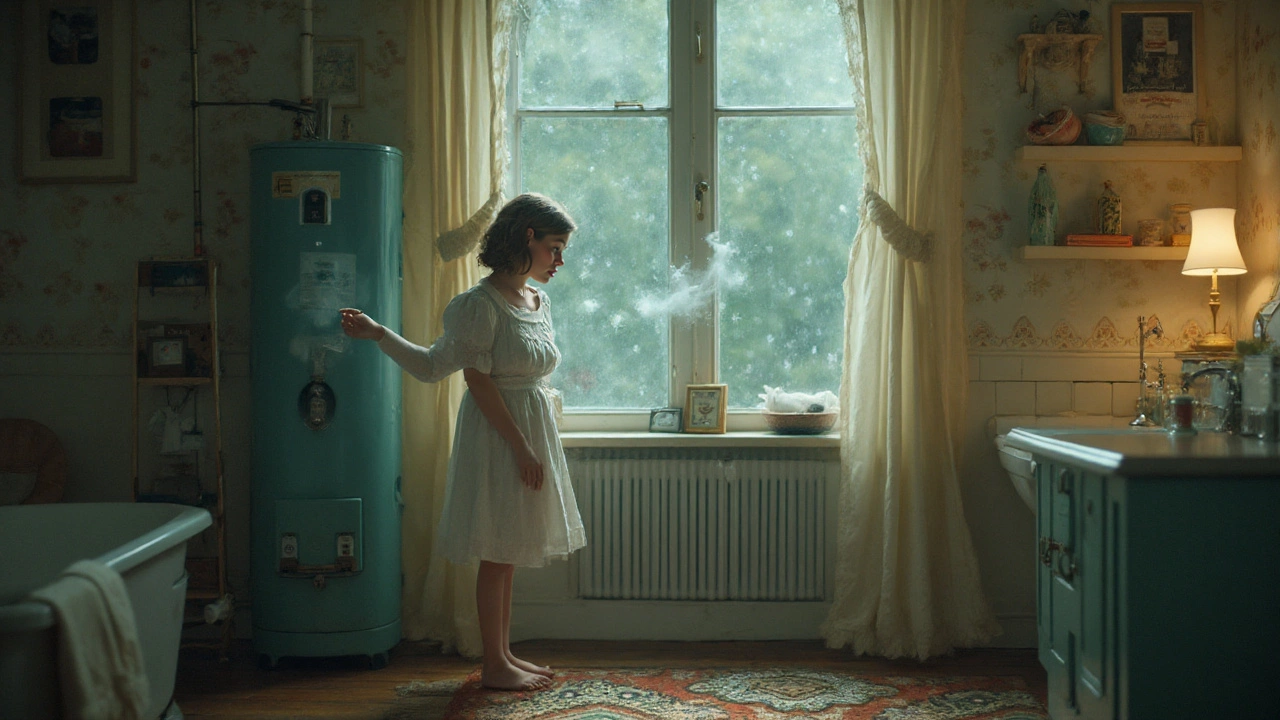Picture this: you're barely awake, waiting for your morning shower to warm up, and—bam—cold water. Not even lukewarm. That blast is usually the only warning most of us notice before things go south with the hot water heater. But your water heater is sneakier than you think. It drops hints long before it decides to quit completely, and catching these clues early can save your home, wallet, and sanity from a chilly surprise or expensive water damage.
Why Water Heaters Fail: The Hidden Lifespan and Silent Killers
Most folks never think about their water heater until there’s a problem, but these appliances aren’t designed to last forever. The average hot water heater runs for about 8–12 years if you’re using a traditional tank model. Tankless heaters stick around a bit longer, sometimes hitting 20. But even the best-maintained system has a breaking point.
Age is the big reason heaters go bad, but lurking behind that are sediment buildup, corrosion, poor water quality, and sometimes just unlucky manufacturing defects. Sediment builds up inside the tank over years, cooking away with every heating cycle. This stuff isn’t just a nuisance—it hardens, reducing the heater’s efficiency, making it work overtime, and slowly burning it out from the inside. Worse yet, as the bottom layer of the tank heats up unevenly due to the sediment, the metal can weaken and eventually crack, leading to leaks. Not a fun way to start your day, trust me.
The water in your home has minerals—even if it looks clean. Calcium, magnesium, and other elements outsmart your filter and slip into the heater. These minerals become that junky sediment I just mentioned. If you’re in a hard water area (and about 85% of the U.S. is), your heater is fighting an uphill battle. Data from plumbing trade associations shows that water heaters in hard water zones fail years earlier than those in soft water areas.
Corrosion is another quiet killer. Water heaters are equipped with “sacrificial anode rods” that rust away to protect the tank. These rods need replacing every few years, but most homeowners either don’t know they exist or forget about them. Once the rod is gone, the tank is next on the corrosion hit list. With 69% of heater failures due to tank leaks, ignoring the anode rod is a straight path to disaster.
Classic Warning Signs Your Hot Water Heater Is on Its Last Legs
Waiting for your shower to turn ice-cold isn’t a solid maintenance plan. Your water heater will drop plenty of signals that it’s struggling. Spotting them early means you can plan a replacement instead of rushing into an emergency buy.
Here’s a handy rundown of red flags:
- Age: Heaters over 10 years old are ticking time bombs. Not sure how old yours is? The manufacturing date is usually coded on the serial number sticker—Google the brand's code format if needed.
- Rusty water: Notice orange-tinted hot water? If it’s only from the hot tap, your tank may be rusting on the inside.
- Strange sounds: Rumbling, popping, or banging from your tank? That’s hardened sediment sizzling away. If you keep hearing these noises even after flushing the heater, the damage is likely done.
- Leaks or pooling water: A little moisture around the base means something is wrong. Sometimes, seals or fittings give out, but puddles usually mean it’s time to shop for a replacement—not repairs.
- Inconsistent hot water: If the temperature changes randomly or hot water runs out faster than it should, the heating element or the tank’s ability to hold heat is failing.
- Cloudy or smelly water: Gunky or stinky hot water (think rotten eggs) can mean sediment or bacteria, both linked to heater issues.
It pays to actually trust your gut too. If your bills are spiking, or the heater seems less reliable, it’s usually your first clue. Heaters use more energy when they’re on the way out, pushing up utility costs in a noticeable way. Not sure what “old” is? Here’s a quick snapshot:
| Type | Average Lifespan | Common End-of-life Signs |
|---|---|---|
| Tank (gas) | 8–12 years | Rumbling, rusty water, leaks |
| Tank (electric) | 10–15 years | Popping sounds, inconsistent temp |
| Tankless | 15–20 years | Error codes, cold water "sandwich" effect |
Ever noticed your heater loses efficiency in winter? That’s normal, but a struggling heater drops off even faster when temps fall. Something to watch as summer fades.

Do You Fix or Replace? The Money Question
Once you spot the warning signs, the next question is: can you fix it, or does it need the hammer (not literally) for good? The answer depends on a couple things—age, cost of repairs versus replacement, and your comfort with risk.
If you catch the problem young, a repair might buy you extra years. Replacing a heating element, thermostat, or even that mystery anode rod is a lot cheaper than a full swap. If your heater is under 7 years old and the tank isn’t leaking, it’s usually worth a repair call. Above that, you’re throwing money at a temporary fix.
Repairs get dicey when parts are obsolete or the tank itself is corroded. If there’s rust or cracks along the base, forget repair—no patch can fix that. Same if you have leaks coming out of the seam. That’s a surefire sign your tank has fizzled out inside.
So what about the money? A typical water heater repair may run $150–$600 depending on the part and labor. A full hot water heater replacement usually costs between $1,000–$3,000 depending on the size and whether it’s gas, electric, or tankless. Modern heaters are also more efficient, meaning you might save on bills after installing a new one. Heating water uses about 18% of a home’s energy, the second highest use behind space heating.
One tip: For older heaters, if the repair costs half or more of a new model, just replace it. You’ll dodge the next breakdown and probably lower your monthly costs.
If you’re looking at tankless systems, they have a higher up-front price tag but may last twice as long and give endless hot water—plus save space. You don’t need a fancy lifestyle to appreciate those perks, either. I swapped to a tankless heater last year, and it cut my energy bills by 20% compared to my stubborn old tank heater.
How to Get the Most Out of Your Next Water Heater
You don’t have to wait for a disaster to think about your water heater. Tune-ups, smart use, and just a dash of attention can stretch its life and avoid cold surprises.
- Once or twice a year, flush your water heater tank to get rid of sediment. Home improvement stores sell hose adapters, or you can use a standard garden hose. Just remember to turn off electricity or gas before draining it.
- Check the anode rod every 2–3 years. If more than 6 inches of the core steel is exposed, it’s time to swap it. Replacement rods are cheap and can buy years of tank life.
- Install a water softener if you’re in a hard water area. That’s one of the best tricks for extending heater life.
- Set the temp to 120°F. This reduces wear, controls energy bills, and cuts the risk of burns and scalds. Most people crank it higher than needed and just add more cold water in the shower, which is a total waste of energy and puts extra stress on your heater.
- Insulate hot water pipes and, if your tank is in a cold spot like a garage or basement, consider a jacket to limit heat loss.
- Test the pressure relief valve each year. Simply lift the lever partway and let it snap back. You should hear hot water gurgle out. If not, replace the valve—it’s a key safety feature.
Don’t ignore recalls either. Look up your heater’s model number—manufacturers occasionally find issues after models ship out, and a quick internet search can save you a headache. You’re entitled to free fixes if you’re under recall, no questions asked.
Choosing your next heater? Figure out your family’s peak usage and check energy efficiency ratings. If you hate waiting for hot water—or if your family is growing, or shrinking—you may need a whole different system than your last one. There’s nothing worse than running out of hot water after soccer practice, except maybe running out every single day.
The secret: pay attention to the signs. Your heater is telling you what it needs, so listen up—it could save you from sudden ice-cold showers and even save you money in the long run. When in doubt, get a pro to look things over before it’s an emergency.
